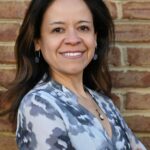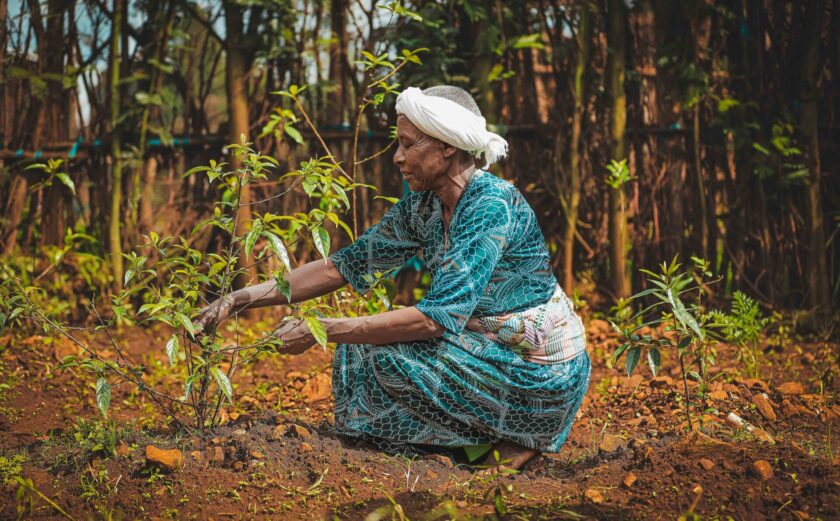
Implementing the Locally-Led Agenda Will Require Paradigmatic Changes
What Does That Look Like?
Centering local leadership and ownership of foreign assistance and programming is vital to more effective international development and peacebuilding.
The Alliance for Peacebuilding (AfP) welcomed USAID Administrator Samantha Power’s comments at the May 2022 Society for International Development Conference, “Shifting to a model of locally-led development means ceding power over decision-making to those who know their problems best.”
While the rhetoric of key multilateral and governmental donors promotes this approach, much work remains to ensure the successful implementation of the locally-led agenda. AfP’s recent brief, Locally-Led Peacebuilding: From Policy to Action, emphasizes that it will require paradigmatic changes in donors’ foreign policies and organizationally to address cultural, legal, and operational barriers. However, locally-led does not require the marginalization of international organizations, which are also critical partners in preventing and reducing violent conflict and building healthy, peaceful, and resilient societies.
Despite some progress in advancing the locally-led approach, significant challenges abound. In November 2021, Administrator Power pledged 25% of USAID funding to local partners within the next four years and 50% by the end of the decade. Numerous legal and policy frameworks from past years prioritize locally-led, such as the 2020 World Bank Group Strategy for Fragility, Conflict, and Violence, the 2020 United Nations Sustaining Peace Agenda, and the 2019 Global Fragility Act (GFA). USAID has been seeking to enhance localization efforts for years, including through USAID Forward (2010), Local Works (2015), the Journey to Self-Reliance (2017), the Acquisition and Assistance Strategy (2018), the New Partnerships Initiative (2019), and the draft USAID Local Capacity Development Policy(2021). However, the localization commitments therein have yet to be fully realized.
Donors remain risk-averse and skeptical about local actors’ capacity to implement programs successfully. Local organizations also struggle with procurement procedures that require expertise in proposal development, monitoring and evaluation, and financial management. Current procurement mechanisms are burdensome for local organizations to navigate due to complex application requirements, jargon-laced requests for proposals, and a necessary competence in the English language both for applying for and reporting on funds received.
To effectively advance locally-led programs, the international community must undertake a major culture shift and tolerate more risk to reap increased rewards. Procurement reform should provide local organizations, particularly those led by and serving women, youth, LGBTQIA+, ethnic and religious minorities, and other marginalized communities, with flexible and longer-term funding cycles. Donors must improve access to funding streams by reducing burdensome proposal and reporting requirements. Funders must bolster the organizational and technical capacities of local civil society organizations by strengthening long-term program and strategic planning, as well as accompaniment, mentoring, and confidence-building. Donors should also support greater local design, monitoring, and evaluation capacity to enhance efforts to measure impact and identify opportunities to scale programming.
The U.S. and other donors need to ensure their locally-led development efforts are in-step with their foreign policy objectives. In Uganda, Western donors, including the U.S., provide significant funding for the Ugandan security forces despite government crackdowns and harassment of local civil society. The U.S. and other donors must stop supporting governments that intentionally subvert the operations of local civil society. The U.S. can honor its commitments to center its foreign policy “on the defense of democracy and the protection of human rights” by supporting local advocacy skills and initiatives to strengthen the enabling environment of local civil society and prevent the closing of civic space.
Implementing locally-led programs will require an enormous technical, operational, and financial paradigm pivot by donors to convey more assistance, decision-making power, and program responsibility to local organizations. Concurrently, donors must balance the value-add of all partners, including international organizations, to ensure a holistic approach to supporting sustainable peace and security.
Read AfP’s full report here.
The Alliance for Peacebuilding (AfP), named the “number one influencer and change agent” among peacebuilding institutions worldwide, is an award-winning nonprofit and nonpartisan network of 165+ organizations working in 181 countries to prevent and reduce violent conflict and build sustainable peace.
Elizabeth (Liz Hume) is the Executive Director of the Alliance for Peacebuilding and a conflict expert with more than 20 years of experience in senior leadership positions in bilateral, multilateral institutions, and NGOs. She has extensive experience in policy and advocacy and overseeing sizeable and complex peacebuilding programs in conflict-affected and fragile states in Asia, Eastern Europe, and Africa.
Megan E. Corrado, Director for Policy & Advocacy at the Alliance for Peacebuilding, is an international lawyer and policy practitioner working to promote human rights, peacebuilding, gender mainstreaming, transitional justice, and post-conflict legal and governance reform. She has extensive experience in international development, grant implementation, advocacy, and political campaign management.
Nick Zuroski is a Manager for Communications, Campaigns, and Policy at the Alliance for Peacebuilding, with experience in conflict prevention, strategic communications, investment research, political economy analysis, and international development. His interests lie at the intersection of peace and stability, gender equality, and grassroots-oriented understandings of human security.










